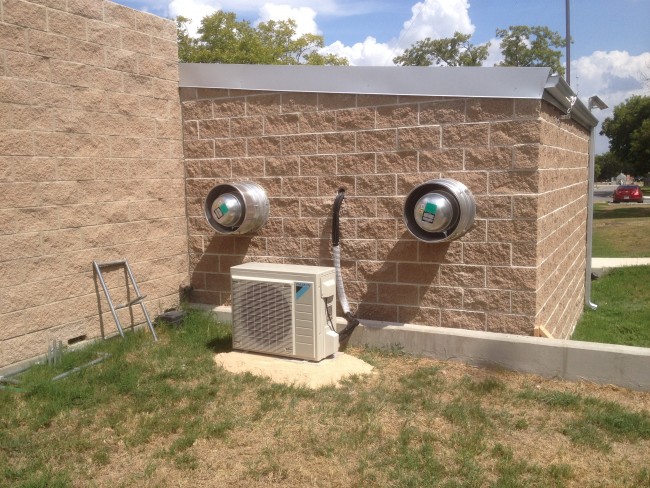
A geothermal heat pump is a form of residential heating and cooling that utilizes the relatively stable temperature found beneath the ground to heat and cool your home. It’s a form of heating that’s been around for generations but is just now catching on as green building practices and sustainable construction gain momentum in the construction industry. If a heating and cooling unit that cuts your electrical consumption 25%-50%, provides you with practically free hot water, and maintains close to perfect humidity in your home year round sounds intriguing to you, then a geothermal heat pump (2 tons or larger) is well worth looking into.
Geothermal Heat Pump 101: The Earth
To learn how geothermal heating works to heat and cool your home so efficiently, it’s best to start with the Earth itself. The Earth constantly absorbs energy from the sun and stores it deep beneath the ground. Dig down deep enough and that energy level, in the form of temperature, remains fairly steady. In fact, it doesn’t matter whether the air topside is 110 degrees or 50 below zero, the soil six feet down and deeper remains a relatively stable 45 to 75 degrees. It’s like venturing into a deep cave. It doesn’t matter what the season is topside, down below a long sleeve T-shirt is going to suit you just fine.
Geothermal Heat Pump 201: How it Works
So how does earth’s relative stability in temperature relate to geothermal heat? geothermal systems utilize that stable temperature to heat and cool your home. A residential geothermal system consists of an extensive piping system that is laid six feet or deeper beneath the soil around your home. Those pipes are connected to a geothermal heat pump that circulates water, or a water/antifreeze mixture, through the pipes, and then harnesses that energy to heat or cool your home, depending on the season. As the water travels through the pipes it adjusts to the temperature of the ground it is circulating through. In the summer, that temperature is considerably cooler than outdoors, and in the winter it’s quite a bit warmer. When that water recirculates back to your heat pump, the results are circulated through your home, either by a fan through ductwork, or through radiant coils installed in your ceiling or flooring.
Geothermal Heat Pump 301: Cost Savings to You
By now, it should be clear why geothermal heating is such an efficient form of heating and cooling your home. What it means for you is huge energy savings year round. In the winter, the warmth of the circulated water is augmented by a traditional furnace in order to heat your home. Sure you’ll have to pay the energy company a pittance, but your furnace will be working a lot less to heat up air that is 50 degrees or warmer than it would having to heat up outdoor air that can be well below freezing. In the summer, the energy saving effects are even more dramatic. Add to that the fact that you can hook your water heater and humidifier up to your geothermal system and get benefits of both relatively free of charge, and it’s easy to see why this is one investment that pays off over time.
Think Long Term Returns
We must warn you now, heat pump systems aren’t cheap to install. Besides the geothermal heat pump itself, a geothermal heating system must integrated into your pre-existing system, trenches must be dug in your yard, and pipes laid in order to allow for the circulation of water or other fluid. Expect your new geothermal system to run a little more than twice as much as installing a traditional furnace and A/C. But with the energy savings you get, you’ll have that paid off in 5-10 years. And after that, it’s all money in your pocket. If you’re looking for an energy efficient, environmentally friendly, and effective way to heat and cool your home, a geothermal heat pump and system is exactly what you’ve been searching for.
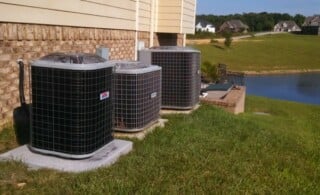 Environmental Heating and Cooling Ideas
Environmental Heating and Cooling Ideas 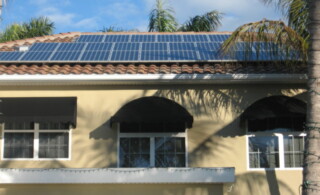 Solar Heating – About Passive & Active Systems
Solar Heating – About Passive & Active Systems 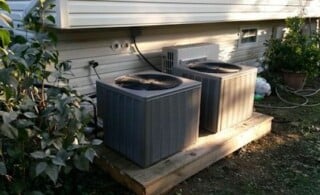 Green Air Conditioning
Green Air Conditioning 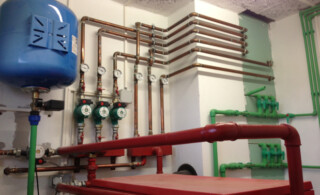 Choosing Green: Boilers and Radiator Heating Systems
Choosing Green: Boilers and Radiator Heating Systems  Geothermal Heat Pump Maintenance: 5 Simple Tips
Geothermal Heat Pump Maintenance: 5 Simple Tips 

Very interesting information about heating & cooling, I’ll just have to get more info about it. Thanks David